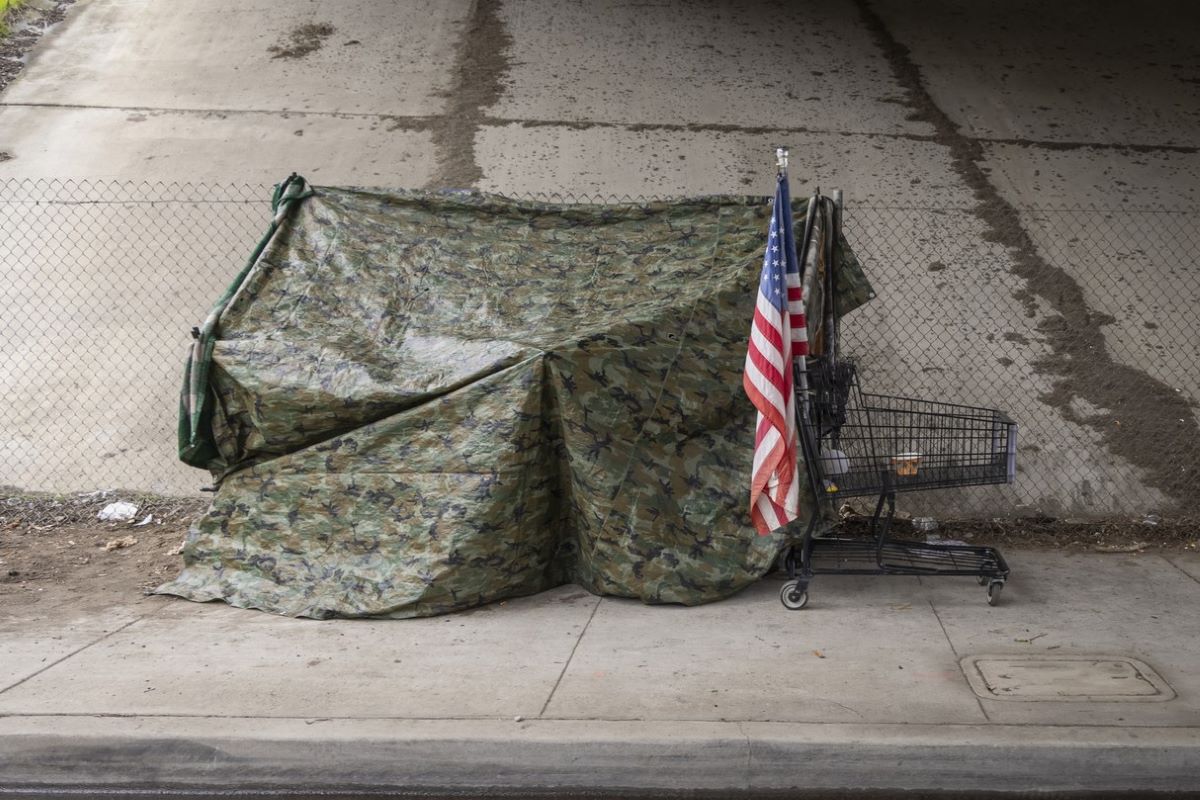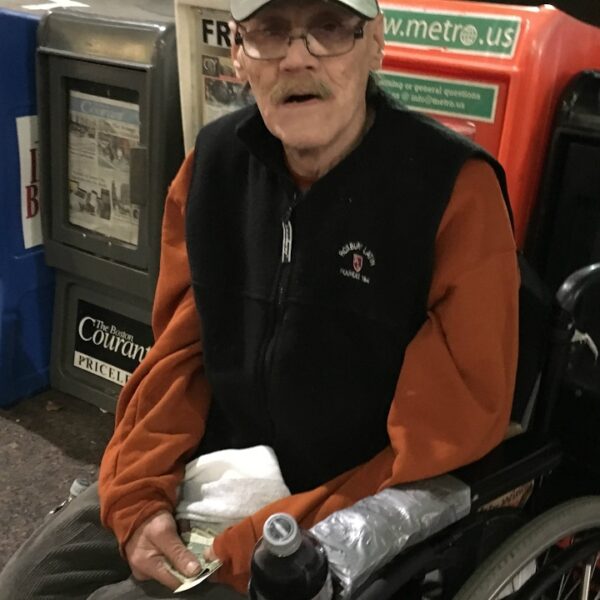The Plight of Young Homeless Veterans is More Dire than in Previous Generations
“Money for wars but can’t feed the poor…”
— Tupac Shakur, 1993
Post-9/11 war veterans, a population consisting of Millennials, X-ers, and Gen Z-ers, face a plight more perilous than their military predecessors. From a statistical standpoint, this group of former soldiers is more likely to be renters, more likely to be disabled, and less likely to own their homes. When put together, all of this data suggests they are, as you might have guessed, more likely to be homeless.
The Harrowed History of Homelessness as a Byproduct of War
We might not think about it often, but the United States of America is in a state of perpetual war. The active combat takes its toll on our nation’s youth, who are increasingly deployed to defend the wants of the elite class under the guise that they are protecting rights and freedoms for all.
They return home, at times fractured and in shambles. In extreme circumstances, they return to no home and are tragically relegated to street corners, park benches, and tents.
Homelessness has always been an unfortunate byproduct in war-ridden territories, and the US is no exception. The bombs and the guns and the fiery explosions might be happening across the oceans overseas, but the bloody aftermath of veteran homelessness is right in our own backyards if we look.
On the surface, we are making progress, housing homeless veterans by the tens of thousands. But beneath the surface, there lies a much darker truth. More veterans are filtering into homelessness than are exiting out of it.
The faces of homeless veterans today are also younger, more likely to be struggling with physical or emotional disabilities, and less likely to become homeowners than in the past.
While the data on the subject matter is seriously lacking (see Stephen Metraux’s riveting expose for context), one thing is clear: Soldiers who enlisted in the US military after 2001 face unfathomably dismal odds compared to older soldiers who served in prior wars like Vietnam.
Young Veterans Are More Likely to be Disabled
According to the US Census Bureau, soldiers who served in the US military after 2001 hold the highest disability ratings on record. To put things into perspective, post-9/11 era vets boast a 43% chance of returning with a service-related disability. That is nearly half of our young veterans, which has not been the case in prior wars.
Soldiers who served in Vietnam, for example, had a 16% chance of returning home with a service-related disability. Those exiting the Gulf War had a risk of disability of approximately 27%.
Not only are these disabilities more frequent in the youth, but they are also rated as more severe. To quote the Census Bureau directly:
“Among post-9/11 veterans with a disability, there is a more than a 1-in-3 chance that they will have the highest disability ratings (in this case, at least 70%), significantly more than any other group of veterans.”
Having a severe disability increases the risk of becoming homeless. So does military service in and of itself. But there’s much more, as the impossibly expensive housing market confounds the crisis.
Young Veterans Are More Likely to be Renters
The RAND Report cites cost-burden as the number one reason our younger veterans are more likely to be renters than previous generations.
Veterans who served in previous wars like Vietnam and the Gulf War were statistically less likely to be cost-burdened than non-veterans. Experts say that, sadly, this is no longer the case.
The data suggests that the trend has flipped, and soldiers who served after 2001 are now more likely to be cost-burdened than their peers who didn’t serve in the military. This makes them more likely to be renters, and in an era of skyrocketing rents and mass evictions, the threat of homelessness again persists.
Young Veterans are Less Likely to Be Homeowners
Bloomberg reports that veterans who enlisted in the US military after 2001 were pretty much robbed of the perk of homeownership, a component once considered part of the package of active service.
While US veterans are still more likely to be homeowners than people who never served, the latest data shows that there is a grave disparity depending on the war and that post-2001 vets are much less likely than their predecessors or their non-military peers to own their homes.
So, what gives? Experts blame the following factors:
- Intergenerational poverty
- Racial discrimination as more military veterans now hail from minority ethnic backgrounds compared to previous wars
- Lack of affordable housing
- Low and stagnant wages
- College loan debts
- Less favorable credit terms and
- Higher rates of disability
This is just scratching the surface of the adversities our former military youth face each day. To shed more light on this subject, in the Vietnam Era, US veterans had a 10% advantage over non-veterans toward homeownership.
In the Gulf War Era, US veterans boasted a 25% advantage over non-veterans toward homeownership. However, for vets who enlisted after 2001, there is zero advantage. Indeed, our young veterans face a 5% disadvantage in homeownership compared to their non-veteran peers.
Young Veterans are More Likely to Be Homeless Than Those Who Served in Other Wars
The incentive for military service is quickly dissipating, but the wars have continued raging. The people who are suffering the most are this generation of soldiers, whose most basic housing needs haven’t even been met.
The words from Tupac’s 1993 debut ring true more than three decades later, and the more things change, the more they stay the same.
Talk to Your Legislators About the Human Right to Housing
The word soldier is commonly associated with words like freedom and human rights. Yet, the very people who enlist to defend freedoms are most likely to be denied them.
Nobody deserves to be living outside on the streets, much less the future leaders of this generation. Talk to your legislators about making housing a human right for all.













